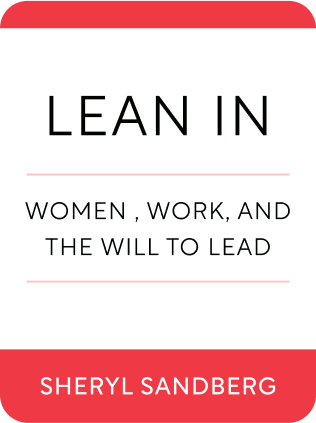

This article is an excerpt from the Shortform book guide to "Lean In" by Sheryl Sandberg. Shortform has the world's best summaries and analyses of books you should be reading.
Like this article? Sign up for a free trial here .
Why do women experience imposter syndrome more than men? How does women’s self-esteem, on average, compare to men’s?
Women are more likely than men to be affected and limited by imposter syndrome, often judging their performance as worse than it really is. In contrast, men tend to judge their performance as better than it is.
Here’s why women are more prone to imposter syndrome.
Imposter Syndrome in Women
This self-doubt women carry is called “imposter syndrome.” Women often feel like imposters inside, as if at any moment they’ll be revealed as frauds. When praised, they feel undeserving and guilty, like a mistake has been made.
Despite her qualifications, even Sandberg has been affected by imposter syndrome. She arrived at Harvard unprepared for its academic rigor and soon felt lost, not as smart as everyone else — a fraud. Through hard work she excelled, but she could never shake this nagging self-doubt.
Contributing to imposter syndrome, women feel more lacking in intrinsic ability compared to men.
- While men see their success as a result of talents and skills, women are more likely to cite hard work, luck, and the support of others.
- When a man fails, he is more likely to point to outside factors, like, “I didn’t study enough,” while a woman is more likely to attribute an inherent lack of ability.
- When a man receives negative feedback, he is less likely to internalize it — accept it as his personal truth.
- In Sandberg’s experience, men bang down her door to be considered for the new opportunities, whereas women are reticent, more cautious about changing roles and being challenged.
A woman is more likely to internalize negative feedback, letting it lower her self-confidence.
Women are tough on themselves, but society mirrors this attitude. For example, Sandberg was the subject of an article that called her “lucky,” citing mentors and opportunities as reasons for her success. No one would ascribe a man’s success to these factors.
Shaking Imposter Syndrome
It’s hard to shake self-doubt, but knowing this feeling is a distortion of reality is the first step. Sandberg advises women to make an emotional and intellectual adjustment when interpreting successes and failures. For example, when feeling headed for failure, Sandberg learned to remind herself of past successes, thus challenging her natural instinct and undistorting the distortion.
Lack of confidence is a self-fulfilling prophecy and it’s important to fight it. One tactic is to fake it. Research backs up the “fake it til you make it” strategy. Even a change in posture can boost testosterone and lower stress hormones, making you feel more in charge.
The most important opportunities are seized, not offered, and being confident (or faking it) allows you to go for it. Confidence allows you to create opportunities for yourself.
Keep Your Hand Up
Making matters worse, no one is noticing and trying to make up for women’s reticence. For example, after giving a lecture on gender issues, Sandberg took questions and then announced “two more questions only.” After two were answered, the women put down their hands, but men kept their hands up; she continued to answer their questions.
Later, a woman said the biggest thing she took from the talk was to “keep her hand up.” Even someone as cognizant of the issues as Sandberg had been blind to a gender issue during a gender equality talk.
A world with greater equality requires two things:
- Women need to make a conscious decision to sit at the table and keep their hands up.
- Institutions and individuals need to notice and correct for women’s reticent behavior, while encouraging and championing women.

———End of Preview———
Like what you just read? Read the rest of the world's best book summary and analysis of Sheryl Sandberg's "Lean In" at Shortform .
Here's what you'll find in our full Lean In summary :
- How professional, personal, and societal hurdles are holding women back
- Why you need to commit to your career with risks and ambition
- How your career is more like a jungle gym than a ladder






